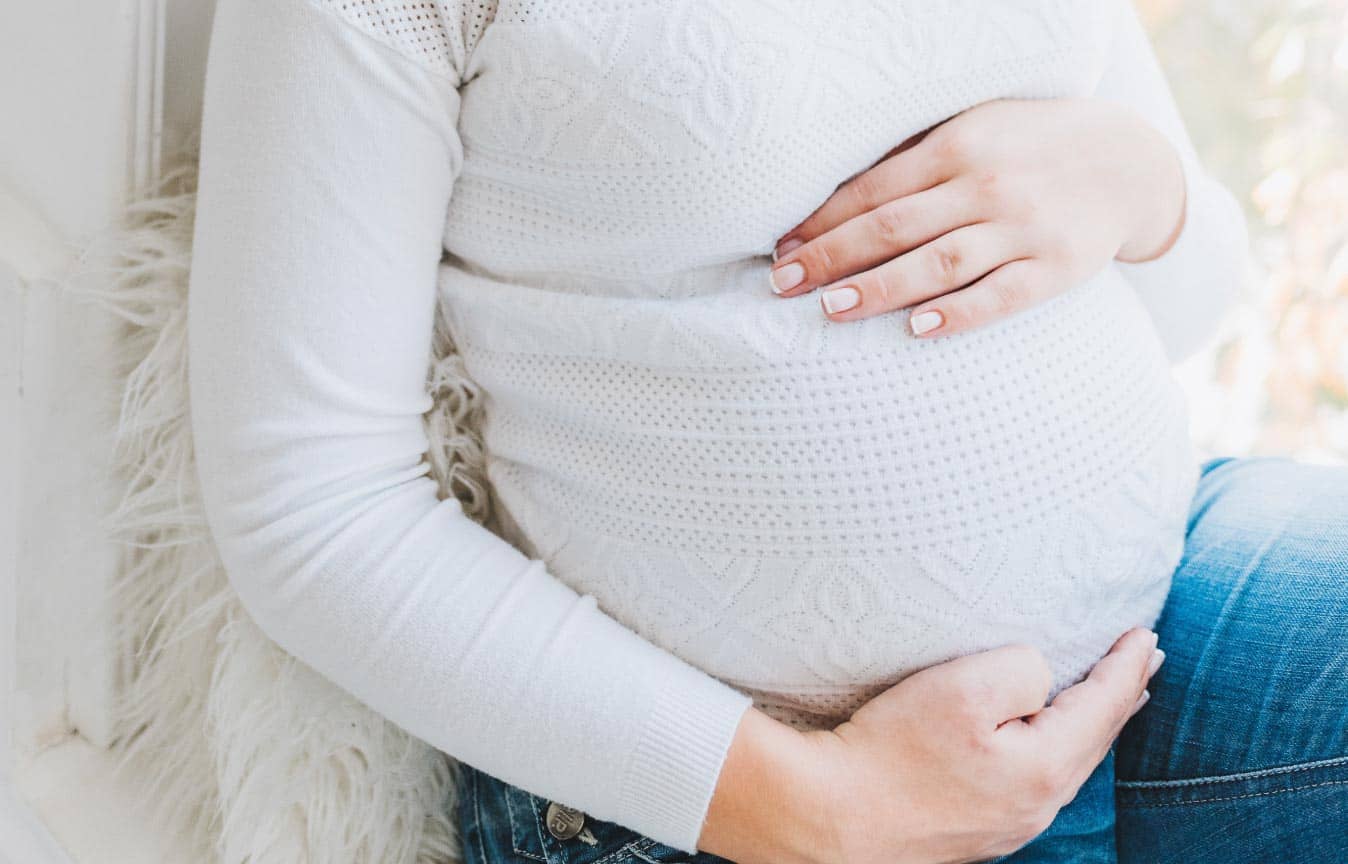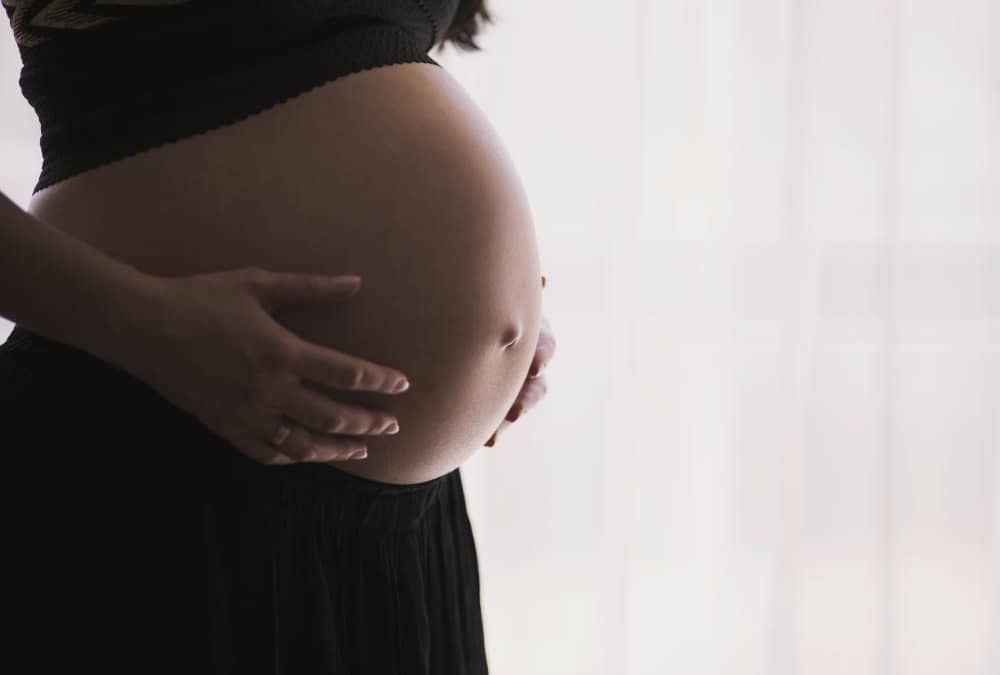CBD oil is a safe, effective, and natural solution for countless health conditions. However, there are some cases in which extra consideration needs to be taken. One such example would be using CBD oil for pregnancy or breastfeeding.
The health benefits are certainly promising and could be very useful for symptoms like anxiety, nausea, sleep, and pain. Regardless, the question still remains if CBD oil is a good option for pregnancy and breastfeeding.
In this article, we will be discussing this controversial topic and our stance at ICARIA as well.
The Simple Answer
CBD oil has not been proven to be safe for pregnant and breastfeeding women. There is simply not enough research or historical data to support this claim at the present time.
CBD is still a relatively new supplement on the market. As such, scientists have not had enough time to properly study the long-term effects. This includes any potentially negative consequences on the developing baby.
Theoretically, with a product that contains no THC, like those using a CBD isolate, it should not pose a risk. However, experts cannot say this with any kind of confidence at this point therefore we cannot suggest it.
Ultimately, the decision is yours if you feel comfortable taking CBD oil while you are pregnant or nursing. However, we would suggest that you do your research and be absolutely sure that the benefits outweigh the possible risks.
The Bottom Line: CBD oil has not been shown to be safe for women who are pregnant or breastfeeding. This is due to the lack of long-term studies.
What Do Medical Professionals Say?
There tends to be some debate on the topic of CBD oil and pregnancy. This is due to the fact that CBD comes from the cannabis plant.
That being said, the American College of Obstetricians and Gynecologists (ACOG) states that women who are pregnant or even thinking about becoming pregnant should not use cannabis in any form, whether smoking or ingesting in any amount.
Studies have concluded that using cannabis during pregnancy can lead to smaller babies with lower birth weight and some other unwanted outcomes. This is typically attributed to THC over CBD though. In addition, the American Academy of Pediatrics (AAP), ACOG, and the surgeon general warn that pregnant women should not smoke cannabis or use any products containing it.
That being said, if you do ingest a CBD product before finding out that you are pregnant, you do not need to panic. However, definitely mention it to your medical professional. There is evidence that the active ingredients in cannabis, primarily THC, can harm a developing baby but most of the conducted research has looked only at repeated and consistent use among pregnant women.
If you are tempted to try CBD oil while you are pregnant or breastfeeding, then you should speak with your doctor. They can offer other ways to improve your symptoms and let you know about any potential risks and side effects of CBD oil for you and your baby.
The Bottom Line: Most of the research that has been conducted is only for consumption of high amounts of THC. Therefore this might not apply to CBD alone.
What are the Possible Risks?
Comprehensive research on healthy pregnant women and CBD currently does not exist as we briefly touched on. However, even the lowest dosage is still not considered to be safe by medical professionals.
Studies show that when the mother smokes or consumes cannabis, the active components can cross the placenta and reach the fetus. This also goes for breastfeeding in which case they can be passed along to the baby through breast milk, but again the evidence is lacking.
Exposure to these chemicals can also prevent normal brain development in the baby and increase the chance of a stillbirth. That being said, there is no data to suggest that CBD oil alone and without THC has the same risks.
In addition, most CBD oils on the market will still contain some THC in them which has been proven to be harmful to the developing baby. THC is the psychoactive component of cannabis that can result in unpleasant side effects for some.
CBD oil is still new and comes from a mostly unregulated market so if you do choose to use it during pregnancy and breastfeeding you need to totally be sure that you are selecting a product and brand that you can trust since there are minimal standards and products labels are not always accurate.
Unfortunately, there are also lots of reports and cases of products being sold as pure CBD but are contaminated with other toxic substances. These should certainly not be anywhere near a growing baby or anyone for that matter. Not only does this include THC, but also pesticides, toxic metals, and bacteria.
One final argument for not using CBD while breastfeeding is that it could possibly impair your judgment. It could make you feel sleepy which could be a risk when caring for your child. However, if the product you are using is a CBD isolate then this should not be a concern.
The Bottom Line: There are known risks linked with the ingestion of THC on the health of a developing baby. CBD products do not need to follow any regulations so you need to be careful with what you buy.
The Final Word
We know that with the plethora of emotional, mental, and physical benefits coming from CBD oil, the urge to try it during pregnancy and breastfeeding is real. However, we encourage you to do your due diligence. Be totally sure that you are making the right decision for yourself and your baby.
Our stance on it is that because of the lack of sufficient research to prove that CBD oil is absolutely safe, we would suggest avoiding it completely to prevent any possible issues down the line. We also encourage you to talk to your medical professional if you are considering using it during this delicate time.
Our priority is ensuring the health and well-being of you and your baby. There are numerous alternative holistic options or natural health practitioners that can help you safely navigate this phase. This includes dealing with the less pleasant side effects of pregnancy and breastfeeding.









